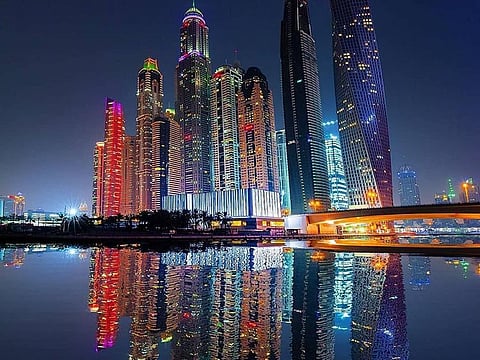Public Private Partnership: Way forward in Dubai’s efficient fiscal management
Public Private Partnership acts as a catalyst for FDI and domestic entrepreneurship

Dubai has a long history of joining hands with the private sector as a key partner in achieving goals such as economic diversification, job creation and sustainable growth.
Going a step further, the Government of Dubai is working on a strategic plan to make large scale investments in both social and economic infrastructure with the participation of private investors.
Public Private Partnership (PPP) is often defined as a long-term contract between a private party and a government/government agency for providing a public asset or service, in which the private party bears significant risk and management responsibility. It relies on the recognition that public and private sectors each have certain advantages relative to other in performing specific tasks.
Dubai’s recent announcement of Dh25 billion new investment using the PPP model spanning projects in infrastructure, public transportation and urban development sectors is the new way forward in augmenting private financial resources and management skills in building infrastructure.
With the new announcement, the total value of both existing and newly-announced PPP projects in Dubai has exceeded Dh65 billion.
Successful PPP programmes require strong legal and institutional framework that facilitates effective negotiation of contracts that takes into consideration all aspects of long term fiscal impact. Dubai’s Law No. 22 (the PPP Law of 2015) has created such a framework.
Effective fiscal tool
PPPs are particularly appealing to governments in managing their fiscal resources by supplementing it with private capital in creating infrastructure through private participation.
The growing need for building and managing infrastructure for a modern economy calls for huge funding requirements. While such ever-increasing financing needs, it is imperative to look at alternative funding models involving private capital, ranging from fund-raising through capital markets to specific time-bound and project-specific PPP models.
The PPP is a well-established funding model for the construction of economic and social infrastructure and is now used in more than half of the world’s countries.
In many countries, PPP is implemented in various forms ranging from pure financial participation that comes with risks and rewards sharing to Build, Operate and Transfer (BOT), Build Transfer (BT), Build Own Operate Transfer (BOOT), Build Own Operate (BOO) and in some infrastructure projects Rehabilitate, Own, Operate, Transfer (ROOT) modalities are used.
In addition to the clear fiscal benefits, PPP also is a way forward in involving private capital for achieving longer term goals such as economic diversification, attracting foreign direct investment (FDI) and encouraging local entrepreneurship. Clearly, all of the above are in total sync with the strategic vision of Dubai in creating a sustainable economic growth model.







